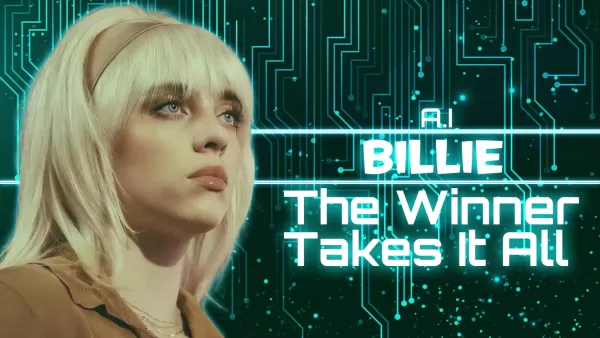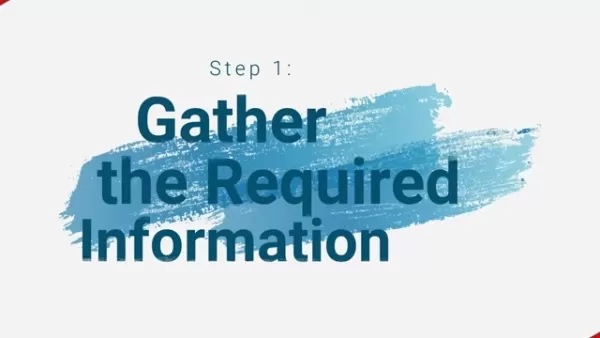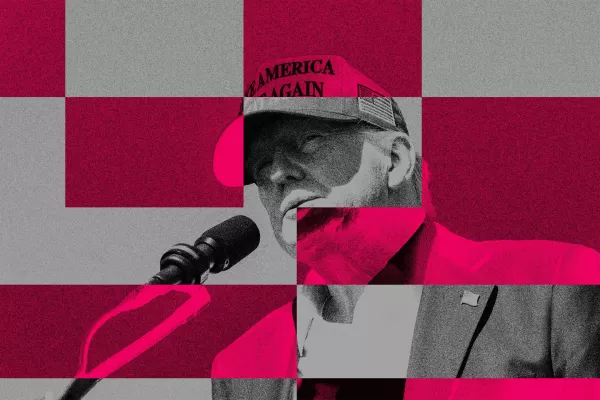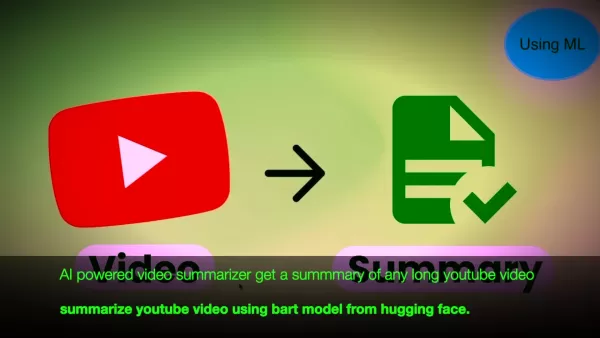Exploring AI Billie Eilish's Cover of 'The Winner Takes It All'
At the crossroads of artificial intelligence and music, new frontiers continue to unfold, presenting both fascinating possibilities and occasional unease. Today, we’re diving into a unique rendition of ABBA's timeless classic, 'The Winner Takes It All,' reimagined by an AI that channels the unmistakable style of Billie Eilish. This exploration isn’t just about the technical feat—it’s a deeper dive into what this means for art, ownership, and the evolving relationship between humans and machines.
As AI ventures further into realms once thought exclusively human, questions about copyright, creativity, and emotional resonance are bubbling to the surface. Is this AI version a tribute or a trespass? Does it honor the original artist, or does it blur the lines of artistic identity? These are the kinds of questions that keep us awake at night—and they’re worth exploring.
The Billie Eilish Touch Meets ABBA’s Heartbreak
Imagine hearing the haunting whispers of Billie Eilish’s signature vocals wrapped around ABBA’s soulful melody. It’s a striking combination—a modern twist on a nostalgic classic. The result feels simultaneously familiar and alien, raising eyebrows and sparking debates among fans and critics alike. For those unfamiliar with the original, 'The Winner Takes It All' is a tearjerker of a ballad that explores the rawness of heartbreak and the bitter-sweet taste of letting go. Written during ABBA’s tumultuous period, the lyrics carry a personal weight, reflecting the band members’ own marital struggles.
Technical Precision Meets Emotional Ambiguity
On one hand, the AI nails the technical side. It mirrors Billie Eilish’s breathy vocals, layered harmonies, and signature vocal phrasing with impressive accuracy. It’s almost eerie how well it captures her distinct style. Yet, when it comes to the emotional core of the song, something feels… missing. The AI lacks the authenticity and lived experience that Agnetha Fältskog brought to the original recording. There’s a depth, a rawness, that only comes from personal struggle and triumph. Without it, the AI version feels hollow, like a perfect replica without the soul.
Legal Quandaries and Ethical Dilemmas
But the conversation doesn’t stop at the music itself. The legal implications are immense. Who owns the rights to this song? Is it ABBA, Billie Eilish, the AI developers, or the person who requested the cover? Copyright law wasn’t built with AI in mind, leaving a gray area that lawyers and courts are scrambling to define. Then there’s the issue of fair use—can an AI cover qualify as transformative enough to avoid infringement? And what about the emotional value of the original? Can an algorithm ever truly replicate the emotional weight of a human performance?
AI’s Potential—and Its Limits
Don’t get me wrong—AI has incredible potential in the world of music. It can assist composers, help producers mix tracks, and even create personalized playlists for listeners. But when it comes to replicating the emotional resonance of human artistry, AI still has a long way to go. The Billie Eilish cover of 'The Winner Takes It All' is a fascinating case study, a glimpse into what AI can do and where it falls short. It’s not about dismissing AI—it’s about recognizing its strengths and limitations, and finding ways to integrate it responsibly into the creative process.
What’s Next for AI in Music?
As AI continues to evolve, we’ll likely see more experiments like this. Some will inspire awe; others might leave us scratching our heads. One thing is clear: the future of music is bound to look different, shaped by both human ingenuity and machine intelligence. Whether AI will ultimately serve as a collaborator or a competitor remains to be seen—but one thing is certain: the journey ahead will be anything but boring.

Related article
 AI-Powered Cover Letters: Expert Guide for Journal Submissions
In today's competitive academic publishing environment, crafting an effective cover letter can make the crucial difference in your manuscript's acceptance. Discover how AI-powered tools like ChatGPT can streamline this essential task, helping you cre
AI-Powered Cover Letters: Expert Guide for Journal Submissions
In today's competitive academic publishing environment, crafting an effective cover letter can make the crucial difference in your manuscript's acceptance. Discover how AI-powered tools like ChatGPT can streamline this essential task, helping you cre
 US to Sanction Foreign Officials Over Social Media Regulations
US Takes Stand Against Global Digital Content Regulations
The State Department issued a sharp diplomatic rebuke this week targeting European digital governance policies, signaling escalating tensions over control of online platforms. Secretary Marco
US to Sanction Foreign Officials Over Social Media Regulations
US Takes Stand Against Global Digital Content Regulations
The State Department issued a sharp diplomatic rebuke this week targeting European digital governance policies, signaling escalating tensions over control of online platforms. Secretary Marco
 Ultimate Guide to AI-Powered YouTube Video Summarizers
In our information-rich digital landscape, AI-powered YouTube video summarizers have become indispensable for efficient content consumption. This in-depth guide explores how to build a sophisticated summarization tool using cutting-edge NLP technolog
Comments (4)
0/200
Ultimate Guide to AI-Powered YouTube Video Summarizers
In our information-rich digital landscape, AI-powered YouTube video summarizers have become indispensable for efficient content consumption. This in-depth guide explores how to build a sophisticated summarization tool using cutting-edge NLP technolog
Comments (4)
0/200
![WillieRamirez]() WillieRamirez
WillieRamirez
 October 6, 2025 at 2:30:38 PM EDT
October 6, 2025 at 2:30:38 PM EDT
Diese AI-Cover von Billie Eilish sind echt gruselig gut! 🎤 Manchmal vergesse ich fast, dass es nicht wirklich sie ist... Aber wo ist die Grenze zwischen kreativer Interpretation und einfach nur creepy? Die Stimme ist verdammt nah dran!


 0
0
![WilliamMiller]() WilliamMiller
WilliamMiller
 September 12, 2025 at 6:30:38 PM EDT
September 12, 2025 at 6:30:38 PM EDT
Essa versão AI da música clássica do ABBA é incrível mas também meio assustadora 😳 Será que no futuro nem vamos mais distinguir entre artistas humanos e gerados por IA? Alguém mais acha isso preocupante ou só eu?


 0
0
![KennethMartin]() KennethMartin
KennethMartin
 August 6, 2025 at 11:00:59 AM EDT
August 6, 2025 at 11:00:59 AM EDT
This AI Billie Eilish cover is wild! Sounds so real, but kinda creepy too. Imagine AI remixing all our old favorites—cool or just weird? 😅


 0
0
![NicholasHernández]() NicholasHernández
NicholasHernández
 July 27, 2025 at 9:20:54 PM EDT
July 27, 2025 at 9:20:54 PM EDT
This AI cover of ABBA's classic is wild! It’s like Billie Eilish and a robot had a jam session. Sounds cool, but I wonder if it’ll ever feel as raw as the real thing. 🤖🎶


 0
0
At the crossroads of artificial intelligence and music, new frontiers continue to unfold, presenting both fascinating possibilities and occasional unease. Today, we’re diving into a unique rendition of ABBA's timeless classic, 'The Winner Takes It All,' reimagined by an AI that channels the unmistakable style of Billie Eilish. This exploration isn’t just about the technical feat—it’s a deeper dive into what this means for art, ownership, and the evolving relationship between humans and machines.
As AI ventures further into realms once thought exclusively human, questions about copyright, creativity, and emotional resonance are bubbling to the surface. Is this AI version a tribute or a trespass? Does it honor the original artist, or does it blur the lines of artistic identity? These are the kinds of questions that keep us awake at night—and they’re worth exploring.
The Billie Eilish Touch Meets ABBA’s Heartbreak
Imagine hearing the haunting whispers of Billie Eilish’s signature vocals wrapped around ABBA’s soulful melody. It’s a striking combination—a modern twist on a nostalgic classic. The result feels simultaneously familiar and alien, raising eyebrows and sparking debates among fans and critics alike. For those unfamiliar with the original, 'The Winner Takes It All' is a tearjerker of a ballad that explores the rawness of heartbreak and the bitter-sweet taste of letting go. Written during ABBA’s tumultuous period, the lyrics carry a personal weight, reflecting the band members’ own marital struggles.
Technical Precision Meets Emotional Ambiguity
On one hand, the AI nails the technical side. It mirrors Billie Eilish’s breathy vocals, layered harmonies, and signature vocal phrasing with impressive accuracy. It’s almost eerie how well it captures her distinct style. Yet, when it comes to the emotional core of the song, something feels… missing. The AI lacks the authenticity and lived experience that Agnetha Fältskog brought to the original recording. There’s a depth, a rawness, that only comes from personal struggle and triumph. Without it, the AI version feels hollow, like a perfect replica without the soul.
Legal Quandaries and Ethical Dilemmas
But the conversation doesn’t stop at the music itself. The legal implications are immense. Who owns the rights to this song? Is it ABBA, Billie Eilish, the AI developers, or the person who requested the cover? Copyright law wasn’t built with AI in mind, leaving a gray area that lawyers and courts are scrambling to define. Then there’s the issue of fair use—can an AI cover qualify as transformative enough to avoid infringement? And what about the emotional value of the original? Can an algorithm ever truly replicate the emotional weight of a human performance?
AI’s Potential—and Its Limits
Don’t get me wrong—AI has incredible potential in the world of music. It can assist composers, help producers mix tracks, and even create personalized playlists for listeners. But when it comes to replicating the emotional resonance of human artistry, AI still has a long way to go. The Billie Eilish cover of 'The Winner Takes It All' is a fascinating case study, a glimpse into what AI can do and where it falls short. It’s not about dismissing AI—it’s about recognizing its strengths and limitations, and finding ways to integrate it responsibly into the creative process.
What’s Next for AI in Music?
As AI continues to evolve, we’ll likely see more experiments like this. Some will inspire awe; others might leave us scratching our heads. One thing is clear: the future of music is bound to look different, shaped by both human ingenuity and machine intelligence. Whether AI will ultimately serve as a collaborator or a competitor remains to be seen—but one thing is certain: the journey ahead will be anything but boring.

 AI-Powered Cover Letters: Expert Guide for Journal Submissions
In today's competitive academic publishing environment, crafting an effective cover letter can make the crucial difference in your manuscript's acceptance. Discover how AI-powered tools like ChatGPT can streamline this essential task, helping you cre
AI-Powered Cover Letters: Expert Guide for Journal Submissions
In today's competitive academic publishing environment, crafting an effective cover letter can make the crucial difference in your manuscript's acceptance. Discover how AI-powered tools like ChatGPT can streamline this essential task, helping you cre
 US to Sanction Foreign Officials Over Social Media Regulations
US Takes Stand Against Global Digital Content Regulations
The State Department issued a sharp diplomatic rebuke this week targeting European digital governance policies, signaling escalating tensions over control of online platforms. Secretary Marco
US to Sanction Foreign Officials Over Social Media Regulations
US Takes Stand Against Global Digital Content Regulations
The State Department issued a sharp diplomatic rebuke this week targeting European digital governance policies, signaling escalating tensions over control of online platforms. Secretary Marco
 Ultimate Guide to AI-Powered YouTube Video Summarizers
In our information-rich digital landscape, AI-powered YouTube video summarizers have become indispensable for efficient content consumption. This in-depth guide explores how to build a sophisticated summarization tool using cutting-edge NLP technolog
Ultimate Guide to AI-Powered YouTube Video Summarizers
In our information-rich digital landscape, AI-powered YouTube video summarizers have become indispensable for efficient content consumption. This in-depth guide explores how to build a sophisticated summarization tool using cutting-edge NLP technolog
 October 6, 2025 at 2:30:38 PM EDT
October 6, 2025 at 2:30:38 PM EDT
Diese AI-Cover von Billie Eilish sind echt gruselig gut! 🎤 Manchmal vergesse ich fast, dass es nicht wirklich sie ist... Aber wo ist die Grenze zwischen kreativer Interpretation und einfach nur creepy? Die Stimme ist verdammt nah dran!


 0
0
 September 12, 2025 at 6:30:38 PM EDT
September 12, 2025 at 6:30:38 PM EDT
Essa versão AI da música clássica do ABBA é incrível mas também meio assustadora 😳 Será que no futuro nem vamos mais distinguir entre artistas humanos e gerados por IA? Alguém mais acha isso preocupante ou só eu?


 0
0
 August 6, 2025 at 11:00:59 AM EDT
August 6, 2025 at 11:00:59 AM EDT
This AI Billie Eilish cover is wild! Sounds so real, but kinda creepy too. Imagine AI remixing all our old favorites—cool or just weird? 😅


 0
0
 July 27, 2025 at 9:20:54 PM EDT
July 27, 2025 at 9:20:54 PM EDT
This AI cover of ABBA's classic is wild! It’s like Billie Eilish and a robot had a jam session. Sounds cool, but I wonder if it’ll ever feel as raw as the real thing. 🤖🎶


 0
0





























